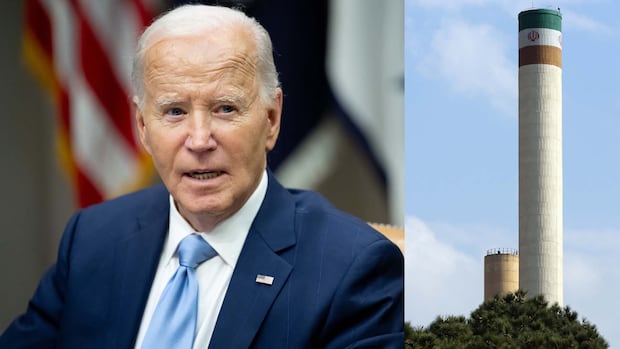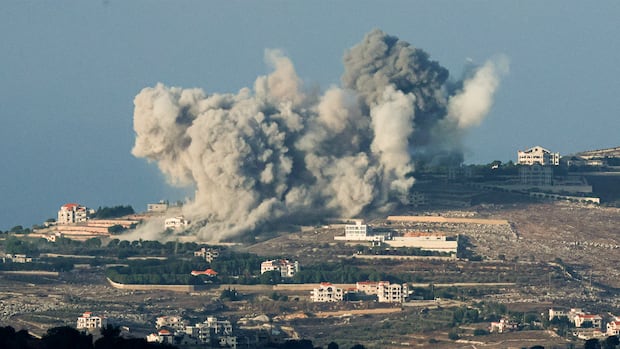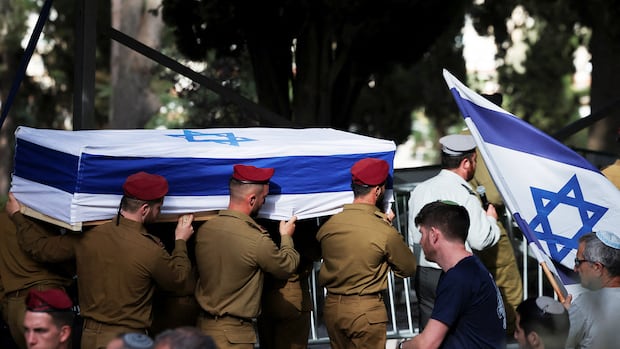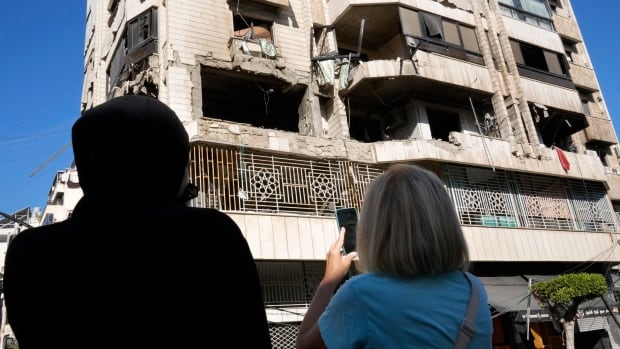
Israel’s military said it killed 15 Hezbollah militants in south Lebanon on Thursday and bombed Beirut after its forces suffered their deadliest day on the Lebanese front in a year of clashes with the Iran-backed group.
Israel said it killed the Hezbollah members in a strike on the municipality building of the southern Lebanese town of Bint Jbeil where they were operating.
The Hezbollah-linked Islamic Health Authority said in a statement that seven of its staff, including two medics, were killed in the Beirut strike.
On Wednesday, U.S. President Joe Biden said he would not support any Israeli strike on Iran’s nuclear sites in response to its ballistic missile attack. Jim Walsh, a senior research associate at the MIT’s Security Studies Program who was with the Iranian president last week, says it needs to ‘be tested’ whether Biden can be persuasive 30 days shy of an election.
Israel said it had conducted a precise airstrike on the Lebanese capital. Reuters witnesses reported hearing a massive blast.
There was no warning before the strike late Wednesday, which hit an apartment in central Beirut not far from a UN building, the prime minister’s office and parliament.
At least six people were killed and seven wounded, Lebanese health officials said. A photo circulating on Lebanese WhatsApp groups, which Reuters could not immediately verify, showed a heavily damaged building with its first floor on fire.
“Another sleepless night in Beirut. Counting the blasts shaking the city. No warning sirens. Not knowing what’s next. Only that uncertainty lies ahead. Anxiety and fear are omnipresent,” said UN special co-ordinator in Lebanon Jeanine Hennis-Plasschaert on X on Thursday.
Three Israeli missiles also hit the southern suburb of Dahiyeh, where Hezbollah leader Hassan Nasrallah was killed last week, and loud blasts were heard, Lebanese security officials said.
The Israel Defence Forces (IDF) urged residents of Lebanese villages who have evacuated their homes not to return until further notice.
“IDF raids are continuing,” spokesperson Avichay Adraee said on X on Thursday.
‘It’s just overwhelming’
A day after Iran fired more than 180 missiles into Israel, Israel said on Wednesday eight soldiers were killed in ground combat in south Lebanon as its forces thrust into its northern neighbour.
Iran said on Wednesday its missile volley — its biggest-ever assault on Israel — was over, barring further provocation, but Israel promised to hit back hard.
Israel’s aggressive assaults against Hezbollah after killing its leader Hassan Nasrallah have weakened and disoriented the militant group, but it still holds much of its previous territory and remains capable of posing a serious military threat.
Qatar’s Emir Sheikh Tamim bin Hamad Al-Thani called for serious ceasefire efforts to stop Israel’s “aggression” in Lebanon and said no peace was possible in the Middle East without the creation of a Palestinian state.
What is happening in the Middle East is a “collective genocide,” he said at the Asia Co-operation Dialogue summit in Doha.
Speaking at the same gathering, Iranian President Masoud Pezeshkian warned against “silence” in the face of Israel’s “warmongering.”
“Any type of military attack, terrorist act or crossing our red lines will be met with a decisive response by our armed forces,” said Pezeshkian.
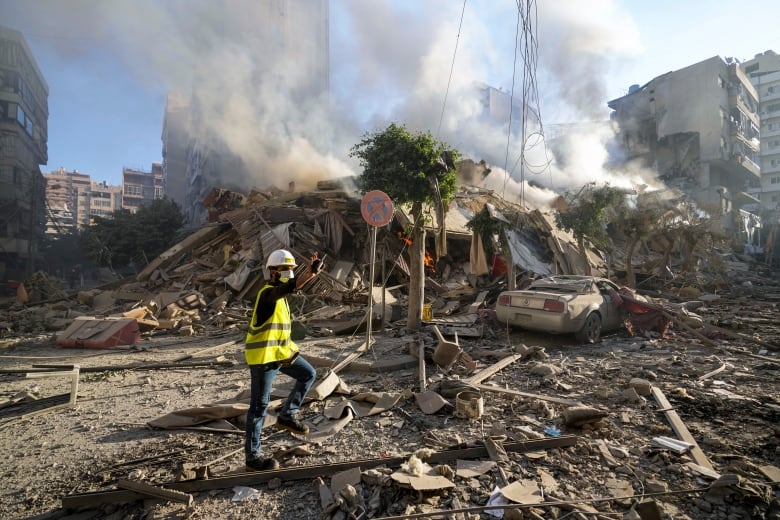
More than 1,900 people have been killed and over 9,000 wounded in Lebanon in almost a year of cross-border fighting, with most of the deaths occurring in the past two weeks, according to Lebanese government statistics.
Caretaker Prime Minister Najib Mikati said about 1.2 million Lebanese had been displaced by Israeli attacks.
More than 300 of those displaced have taken shelter in a Beirut nightclub, once known for hosting glitzy parties, and its staff are now using their guest-list clipboards to register residents.
“We’re trying to keep strong,” said Gaelle Irani, who was formally in charge of guest relations, taking a brief break from finding people a corner to live in.
“It’s just overwhelming. So overwhelming and sad. But just as this was a place for people to come enjoy themselves, it’s now a place to shelter people, and we are doing everything we can to help and be there for them.”
Houthis target Tel Aviv
Nasrallah’s elimination dealt a major blow to Hezbollah, Iran’s most powerful proxy. The leader had developed the group into Lebanon’s most influential military and political force, with wide reach in the Middle East.
Hezbollah and Iran’s other regional allies — Yemen’s Houthis and armed groups in Iraq — have launched attacks in the region in support of Hamas in its war with Israel in Gaza.
Israelis are mourning eight soldiers killed in the Israel Defence Force’s ground operation against Hezbollah in southern Lebanon. Israeli officials and civilians are also assessing and cleaning up the damage from Iran’s missile barrage.
The Houthis, who have been firing missiles, sending armed drones and launching boats laden with explosives at commercial ships with ties to Israeli, U.S. and U.K. entities since last year, said they launched a successful attack on Israel’s commercial capital Tel Aviv with drones. Israel said it intercepted a suspicious aerial target in the area of central Israel early on Thursday.
Western nations have drafted contingency plans to evacuate citizens from Lebanon after Tuesday’s dramatic escalation, but none have launched a large-scale military evacuation yet, though some are chartering aircraft as Beirut’s airport stays open.
Global Affairs Canada (GAC) is not offering what it terms “assisted departures,” but it is helping Canadian citizens and their families by arranging seats on commercial flights out of Lebanon.
“As of Oct. 2, 1,700 people have been contacted about flight options; of that 1,700, one-third have chosen to reserve a seat on the flights available,” GAC said in a statement.
The flights out of Lebanon land in Istanbul, and Canadians who avail themselves are responsible for their own airfare and subsequent arrangements for accommodation and travel.
